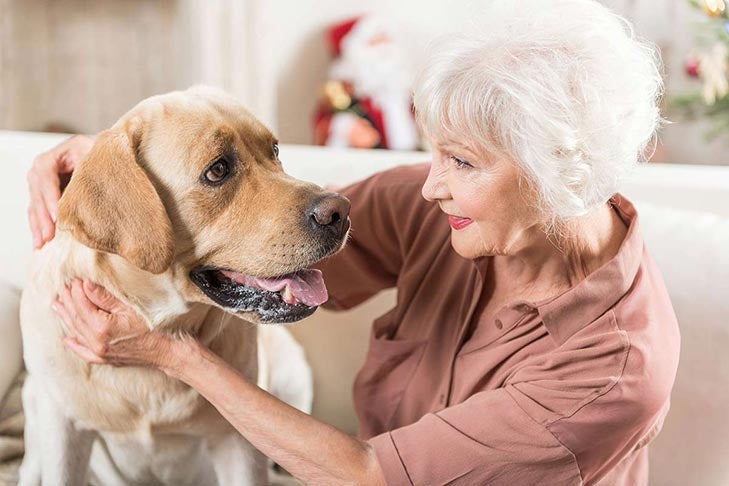
Canine mammary tumors are common in middle-aged or older bitches. Risk factors include increased age, exposure to ovarian and growth hormones, ovariectomy after 2.5 years of age, and obesity at a young age.
Approximately one-half of these tumors are malignant, and local recurrence and distant spread are possible following surgical removal. Prognosis is affected by the tumor size, type (adenocarcinoma or sarcoma), grade (biologic aggressiveness), and clinical stage (spread of disease throughout the body) at diagnosis. While these tumors are rarely fatal, they remain a major health concern for owners of intact females. The AKC Canine Health Foundation (CHF) and its donors are committed to improving the health of all dogs and are funding two studies aimed at new treatment strategies for canine mammary tumors.
Investigators at the Ohio State University are exploring the use of optical coherence tomography (OCT) to help surgeons achieve adequate margins during surgical removal of canine mammary tumors and soft tissue sarcomas. OCT functions similarly to ultrasound, but it uses light reflected to the probe instead of the sound waves used in ultrasound. The light reflects from various tissue surfaces and provides a high-resolution, cross-sectional image of the tissue structure in place and in real time. Once validated for canine mammary tumors, the use of OCT could provide an accurate, intra-operative method to determine surgical margins. Thanks to AKC CHF Grant 2204-T: Using Enhanced Imaging to Evaluate Tumor Margins for Canine Mammary Cancer and Soft Tissue Sarcoma, investigators have taken the first step toward this goal, demonstrating that OCT can adequately distinguish between soft tissue sarcoma, muscle tissue, and fatty tissue.

Other advancements in the treatment of canine mammary tumors expand upon the discovery that tumor microenvironment (the normal cells, molecules, and blood vessels that surround and feed a tumor cell) helps regulate the biologic behavior of human breast cancer. If this also occurs in dogs, veterinary medicine could have new biomarkers and treatment targets for canine mammary tumors. Investigators at the University of Pennsylvania have identified properties of collagen in the canine tumor microenvironment that correlate with patient survival time. CHF Grant 2489: Tumor-permissive Collagen Signatures in Canine Mammary Gland Tumors: Development of Prognostic Markers and Targeted Therapies for Improved Outcomes will allow investigators to study naturally occurring mammary tumors in dogs adopted or placed in permanent foster care through the Penn Vet Shelter Canine Mammary Tumor Program. This program provides complete and lifelong mammary tumor care for enrolled dogs and will also provide clinical outcome data related to the research findings. Investigators will explore additional collagen characteristics that predict clinical outcomes and examine exactly how they affect tumor behavior. They also hope to develop treatments that will prevent formation of these tumor-friendly microenvironments.
Surgical removal is the gold standard treatment for canine mammary tumors. CHF-funded studies may provide a tool that allows surgeons to completely remove tumor tissue in one surgery, as well as biomarkers that provide valuable information on tumor prognosis and new treatment options.
Join CHF and its donors in their mission to advance the health of all dogs by giving a donation through their website.


